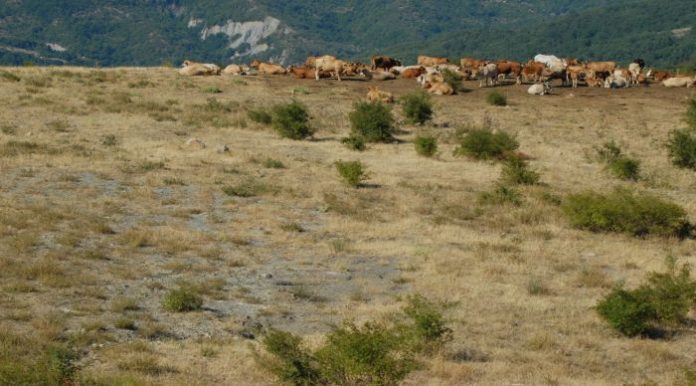
Depopulation and economic marginalisation of rural areas in Southern Europe have led to a progressive abandonment of agricultural land. The areas at highest risk of abandonment are those characterised by extensive grazing management which is highly dependent on the presence and economic consistency of incentives and subsidies dedicated to the promotion of more sustainable land uses.
In the South of Europe, undergrazing is the main cause of land degradation (i.e. loss of biological and economic productivity of ecosystems) of pasture areas (spread of woody species, increase of necromasses, floristic simplification, etc.). In such regions, preserving the resilience of pastures through appropriate management means gaining more detailed knowledge on the impacts that different grazing practices have imposed on ecological systems and understanding the socio-environmental mechanisms that govern the choice of those practices.
The consequences of different grazing management regimes on the status of agro-pastoral systems currently present in the mountain municipality of Castelsaraceno (Southern Apennines, Basilicata, Italy) were analysed in this work. The multiscale analysis made use of different types of data (remote, in situ, economic, social) and statistical techniques to identify within 5 homogeneous sub-areas (Figure 1) three main land use trajectories that have characterised the investigated area with different outcomes in terms of induced land degradation phenomena: (a) completely abandoned areas; (b) or areas with a decrease in grazing intensity where management practices remained unchanged over time; (c) areas with a decrease in grazing intensity characterised by significant changes in management practices.
The results of the study show how, in certain circumstances, the mutual interaction of regional and local factors can lead to an ecological-economic imbalance that neither meets the needs of the productive market nor promotes the conservation of ecosystem services. The work proposes some recommendations in terms of practices to be adopted in order to favour the sustainable development of rural, mountainous and marginal areas in the Mediterranean basin on the basis of the results obtained for the area investigated.

In this direction, future research efforts should focus on the comparison of similar systems of livestock farms operating in mountain-rural contexts similar to that of the present work and distributed within different Mediterranean countries. In this way, it would be possible to identify optimal management solutions that can combine a sustainable exploitation of pasture resources with satisfactory farm performance that can inspire future policies at both national and European level.
For further information: Quaranta, G., Salvia, R., Salvati, L., De Paola, V., Coluzzi, R., Imbrenda, V., & Simoniello, T. Long-term impacts of grazing management on land degradation in a rural community of Southern Italy: Depopulation matters, Land Degrad Dev, 2020, 1-16 – https://onlinelibrary.wiley.com/doi/abs/10.1002/ldr.3583



































